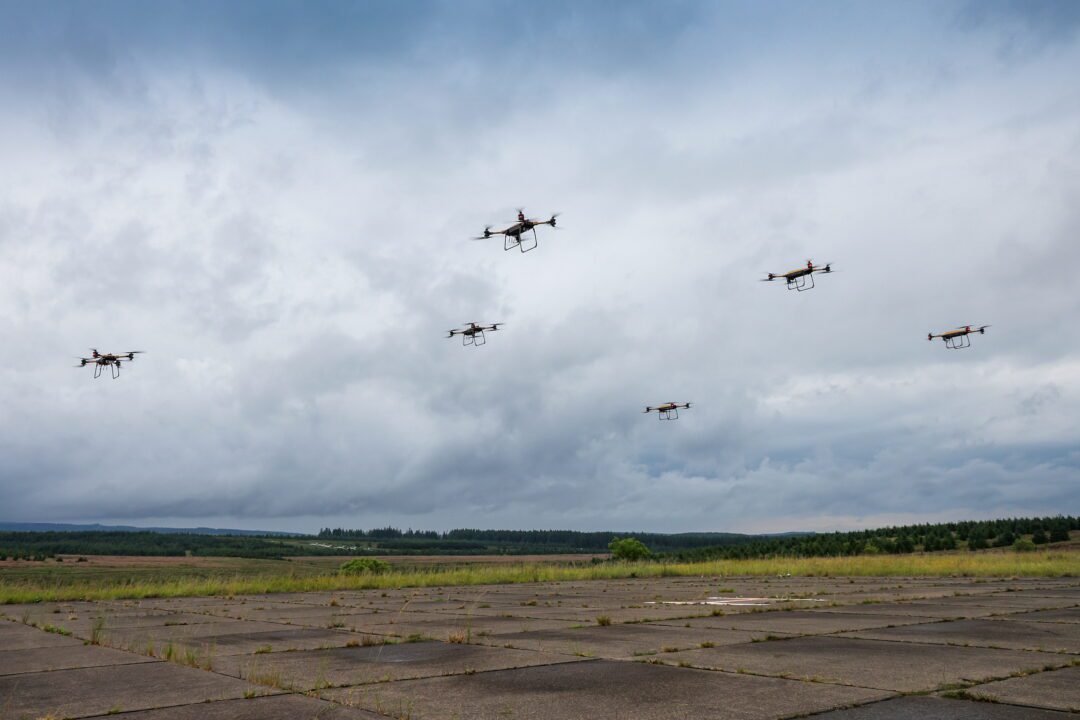
LESSONS FROM UKRAINE FOR UK DEFENCE: ASSURANCE AT THE SPEED OF INNOVATION
The ongoing war in Ukraine has highlighted a stark reality: the speed of adaptation determines both survivability and operational success. Both sides have demonstrated extraordinary agility in adjusting tactics and deploying new technologies — from unmanned aerial systems and counter-drone measures to electronic warfare and cyber effects. Innovation is no longer measured in decades, or even years, but in weeks.
Commanders on the ground are iterating faster than traditional acquisition cycles can accommodate, creating asymmetric advantages that shift the balance of combat effectiveness.
For the UK, the implications are clear. The Integrated Review (IR 2021, refreshed 2023) and the Strategic Defence Review 2025 (SDR) both stress the need for accelerated innovation and resilient adaptation to meet the challenges of peer and near-peer competition. But speed alone is not sufficient. The Ministry of Defence (MoD) must ensure that the systems it fields are trusted, safe, and secure. The UK is not yet at war and therefore has additional challenges to ensure its service men and women are operating equipment that is safe, predictable and trusted. Without robust assurance at pace, the risks to force protection, operational credibility, and public confidence are too great.
THE ASSURANCE CHALLENGE: KEEPING PACE WITH INNOVATION
Traditional assurance processes — encompassing safety, security, airworthiness, accreditation, and certification — have historically been thorough but slow. They are designed for environments where systems evolve incrementally and are fielded over long timelines. In today’s battlespace, where novel systems can be deployed within weeks, these assurance functions risk becoming a critical bottleneck.
The challenge is acute. If the MoD cannot accelerate assurance in line with innovation, then the rapid adaptation demonstrated in Ukraine will remain out of reach for UK forces. Worse, a capability gap could emerge in which adversaries field novel systems faster, while the UK remains constrained by outdated assurance cycles.
This is not simply a technical problem; it is an issue of operational credibility and strategic deterrence.
The Defence and Security Industrial Strategy (DSIS, 2021) recognised the need for new models of partnership with industry to deliver capabilities at pace.
Similarly, the Defence Reform programme emphasised the role of agile acquisition, spiral development, and empowered decision-making. Yet the reality is that assurance functions must also evolve — and evolve quickly — if innovation is to deliver its intended effect.
TRUST AND THE ROLE OF THE MISSION PARTNER
At the heart of this transformation lies trust. Defence customers must be confident that their mission partners not only understand the technical challenge but also share their operational intent and appetite for risk. Assurance is not about rigid compliance but about calibrated confidence — ensuring that systems are safe, secure, and fit for purpose without constraining adaptation.
Where companies are trusted to act as true Mission Partners, integrated into the customer’s enterprise with a deep understanding of their priorities, challenges and, critically, their risk appetite, they can scale the assurance process intelligently and dynamically.
This enables a tailored and thereby accelerated approach, while maintaining appropriate levels of evidenced confidence. By establishing mutual trust, it is possible to deliver assurance that is:
- Sensible — aligned with the operational mission and proportional to risk.
- Safe — ensuring that systems protect lives and maintain integrity.
- Shared — built on mutual understanding between MoD, frontline users, and industry.
The SDR 2025 stresses that success in modern competition depends not only on military mass and technological edge, but also on partnerships that deliver effect at pace. This includes partnerships that help Defence think differently about risk — managing it intelligently, not avoiding it unnecessarily.
IMPERATIVE TO INNOVATE FAST, WITHOUT COMPROMISING SAFETY
The Ukraine conflict underscores the reality that innovation without assurance can create fragility, and assurance without speed is irrelevance. The UK must therefore embrace models of partnership that accelerate both.
Roke’s view is that the trusted Mission Partner model enables speed with confidence. By embracing this Mission partnering, UK industry can enable the MoD to deploy capabilities at the speed required by modern conflict, without compromising safety, security, or credibility.
In an era of rising tensions and accelerating threats, trust is the decisive enabler. Assurance must move at the speed of innovation. With trusted partners, the UK can — and must — achieve both.
Image source: UK MOD © Crown copyright 2023




